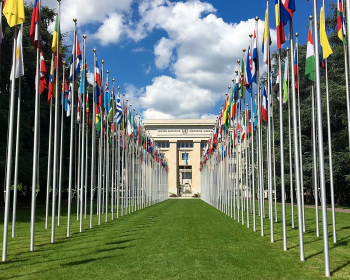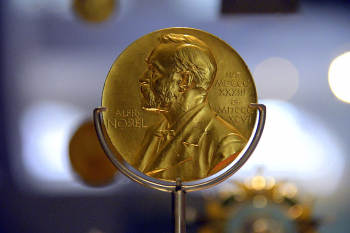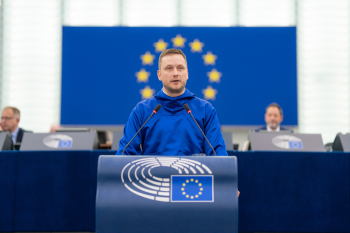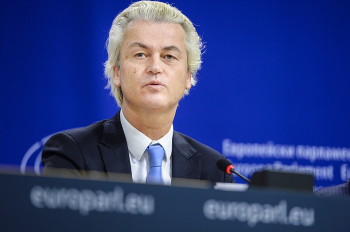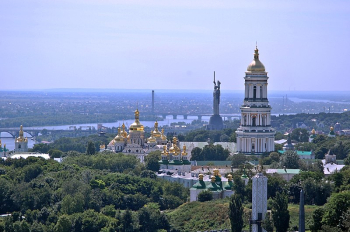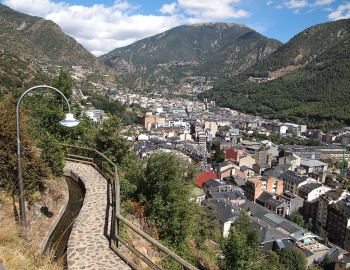
Speech by Vice-President Věra Jourová
Ladies and Gentlemen,
I am honoured and grateful for the opportunity to be with you today. I want to thank the Mayor of this great city of Gdańsk, Madame Dulkiewicz, for the invitation.
Personally for me this is a deeply moving moment, to be able to stand here, on the territory of the old Shipyard. 41 years ago, Solidarność was born here and with it - the hope of a better and freer life not only for the Poles, but also for the Czechs, Slovaks and other nations that had been placed on the wrong side of the Iron Curtain.
I have no doubts that the events of August 1980 are forever engraved not only in the history of Poland, but of the whole of Europe. The eastern bloc started to crumble right here in Gdańsk. Polish shipyard workers removed the first brick from the Berlin Wall. That led directly to the end of the European divide. Today's Europe would not be the same without Gdańsk, without Poland and the August 1980 events.
When I go back in time to try to recall what I knew about Solidarność in 1980, I must admit – not much. I was a young woman, living in the small town of Třebíč. Shortly after that, I learnt that doors to Czechoslovak universities were closed for me, because my dad was an open critique of the communist regime. The only chance for me to study later would be to hide behind my husband's surname.
The reason we did not know much about Gdańsk, Szczecin, Lublin and other protests is that in communist Czechoslovakia, just like in communist Poland, the government controlled all the media. The media did not inform us about the strikes; they did not tell us what Solidarnośćreally stood for. On the contrary, if and when the media mentioned it, they portrayed the heroes of Solidarność as bloodthirsty counter-revolutionaries. They portrayed striving for better life and freedoms as treason.
To discover the truth, we needed the brave oppositionists from Poland and Czechoslovakia.
For me, as a Czech, Solidarnonść remains to this day a great inspiration. I am looking into the past today, because knowing what happened helps to decide where to go in the future. We should never forget the events that started in Poland; they should be a constant reminder how important the freedom of choice is for the people.
This brings me to a few lessons from that time that are relevant for the future.
First lesson is that Polish and Czech cooperation has always been important. We always found ways to talk and support each other. Today, in our democratic countries this cooperation continues bilaterally, in the EU or within the Visegrad group.
The second lesson for me is about the freedom of speech. The people need media to control us in power, not to bow to the power.
This is what the founders of Solidarność knew very well. The third demand of the Gdańsk protestors was to guarantee freedom of speech, press and publications.
Strong democracies welcome a diversity of views; they are not scared of them.
I am making this point, because the situation of the media across the whole of Europe is getting worse. Journalists were killed in the Netherlands, Greece, France, Malta and Slovakia in recent years. The media are under increasing economic and political pressure, also here in Poland.
So standing here in Gdańsk, I want to appeal to you - we need to make our own declaration for modern Europe to support the media. This is why I will propose the Media Freedom Act and I hope I can count on you and the Polish citizens to shape it and support it.
The third lesson for me is the importance of unity. The main strength of Solidarność was its unity. Anna Walentynowicz, Andrzej Gwiazda, Bogdan Lis, Lech Wałęsa, Henryka Krzywonos or Jacek Kuroń – some of the many heroes of Solidarność - they managed to put their differences aside for the greater good.
They knew that the biggest enemy of the communist regime is people's unity. The regime knew that too, this is why it tried to divide them.
When I think about the heroes of Solidarność, I need to pay tribute to the forgotten ones – the women - Barbara Labuda, Ewa Ossowska, Alina Pieńkowska, Joanna Duda-Gwiazda and countless others. Women constituted majority of the protestors in Gdańsk shipyard. They were there, unbreakable.
While history brings brave men to the fore, women tend to be pushed to the background. Our gratitude for these brave women must show itself not only in appreciating the past, but in thinking about support for women today.
The Solidarność movement teaches us that the change that seems impossible today is unavoidable tomorrow. This is why our support for women has to continue every day, everywhere.
Ladies and gentlemen,
John Paul II famously said: “there is no liberty without solidarity”. He was so right, because without solidarity there will be no trust among people and nations.
Liberty, unity and solidarity are also at the core of today's EU. These are our founding values. Our adversaries today also understand it and they also try to divide us. Yet, we have so far managed to go through many crises and we remain united.
Today's liberty and unity are not gifts. They are a result of the hard work of many people.
Our unity is possible because it is built on the common ideal that the nations of Europe can co-exist peacefully. Unity is possible because we believe that we can trust one another and if this trust is betrayed there are institutions and courts to restore it.
But European trust is fragile and under constant attack. We have to uphold it and protect it. This is the best way to secure freedom, democracy and peace between our nations. But this is also the best, if not the only way, to stand up to the global challenges.
Of course, unity does not mean we have to agree on everything. But we have to be able to agree on the basics and put our differences aside when it comes to preserving the greater good.
This is why it is important to recall some of those basics again: freedom of speech, independence of judges, equal treatment and the understanding and appreciation that power is limited in its actions by law and other factors (the famous checks and balances).
The solidarity spirit is so visible in it.
I think the time has come to renew our commitment to these fundamentals.
I know that today in Poland, there are questions about these basics. Some would like to see them changed to fit into the current political interests. To those I would like to say: it is fine to differ politically – this is what democracies are for. But we have to follow the common rules of the game; we have to agree that there is one referee. These rules are called the rule of law.
From our common past, I would like to recall an important lesson – we tested how it is when more, in fact all, is dependent on a central authority. We know it does not work.
Democracy might seem painfully slow at times, but this is the price worth paying for freedom, liberty and the trust of the citizens in its authorities.
Václav Havel, the Czech anti-communist opposition hero, wrote: ‘The natural disadvantage of democracy is that it is extremely tiring to those who mean it honestly, while it allows almost everything to those who do not take it seriously.'
At the end, I would like to say a few words about the future, especially about the future of Poland. Poland, from the vantage point of Prague or Brussels, is a success story. Democratic, self-confident Poland has become more prosperous and freer than it was before.
The EU relies on the strong and constructive voice of Poland. The future is bound to bring tremendous challenges and I personally am more afraid of Polish inaction rather than Polish strength.
We need a strong Poland at the core of the EU, shaping it, on the basis of our common values and mutual trust.
Because the EU is ‘us', not ‘them'. The EU is ‘we'. You sitting here in front of me, me from Czechia and the governments, parliamentarians and judges, the citizens – we are all the EU. We gained the tools to shape it and change it for the better.
For our region, for Poland, Czechia and many others, we have a unique opportunity to make an impact on the collective future of Europe. So, standing here in Gdańsk and feeling the energy of past events, of Solidarność changing the faith of Europe, I can only say – let's do it. Together.
It is people and people alone who hold destiny in their hands. The heroes of Solidarność, Karta 77 or Hungarian oppositionists showed us that positive change is possible. The only ones who can bring and protect freedom are the people themselves. The faith of Poland is in the hand of the Polish people. It is the choices you make here in Poland that will decide your future in Europe and the future of Europe.
President Wałęsa said to me that it is time for the next generations to change and build a better Europe. I promised to him I will do my best. Photo by European Parliament from EU, Wikimedia commons.

